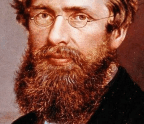Who’s holding the baby?

In the summer of 1947, the British government launched a patriotic appeal to the nation’s wives and mothers. War debts and the costs of rebuilding bomb-ravaged cities had sucked the life out of the country’s major export industries, from textiles and clothing to shoe, boot and hosiery production. Hospitals and schools were short on staff, while farmers had no one to harvest their crops. Only the married woman at home, ministers insisted, could restore economic prosperity by offering her labour. “In the next big effort,” one newspaper advert read, “you can be one of the women who turn the tide of recovery.”
A key question, however, was left unanswered: what would happen to the children of these selfless volunteers? The war nurseries, established after 1939 for use by munition workers, had closed their doors, while the expansion of nursery schools promised in the landmark 1944 Education Act was making little progress. After-school or holiday care for older children was practically non-existent. One mother from west London expressed her frustrations to the Daily Mirror: “Of all my many anxieties, the school holidays present the biggest problem. For six or seven weeks in summer, three at Easter, two at Christmas and one at Whitsun I am at my wits’ end to know what to do for my little girl, aged nine.”
Working mothers everywhere felt her pain. Throughout
You’re reading a preview, subscribe to read more.
Start your free 30 days



